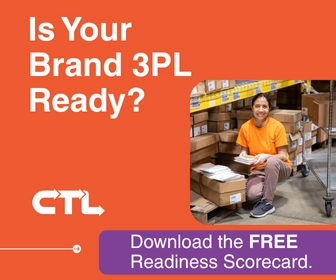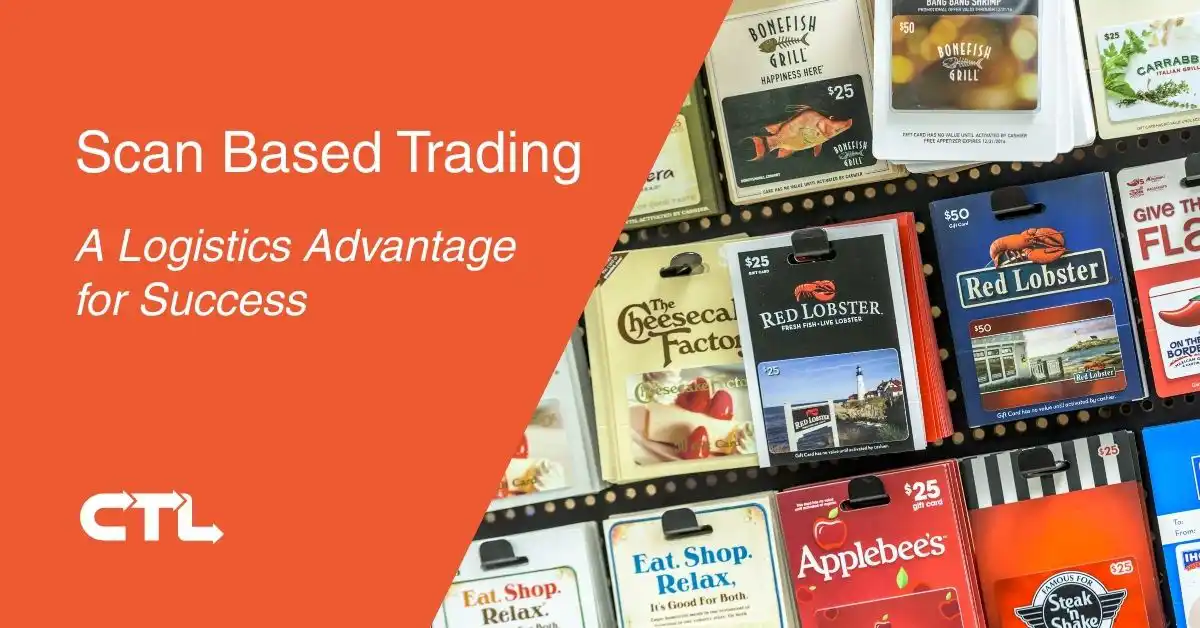Maximizing Efficiency with B2B Fulfillment Services: A Strategic Guide for Brand Leaders
- CTL

In an era where speed-to-shelf and supply chain precision are paramount, B2B fulfillment services have become a competitive differentiator. Whether launching a nationwide retail program or managing ongoing replenishment across multiple channels, operational efficiency is essential. For brand leaders, operations teams, , the right fulfillment strategy can mean the difference between flawless execution and costly disruptions.
This guide outlines how partnering with a third-party logistics (3PL) partners for B2B order fulfillment services can streamline operations, reduce overhead, and enable scalability across complex supply chains.
What Is B2B Fulfillment?
B2B fulfillment is the end-to-end process of delivering products from a manufacturer or brand to another business—such as a retailer, distributor, or reseller. Unlike B2C fulfillment, which handles individual consumer orders, B2B fulfillment involves bulk shipments, strict compliance requirements, and specialized routing protocols. Brands turn to experienced 3PLs to mange these complexities. A strong B2B fulfillment partner provides:- Flexible Scalable infrastructure
- Seamless integration with EDI, ERP, API systems
- Compliance with retail routing requirements
- Inventory visibility and real-time tracking
When B2B Fulfillment Gets Complex
There are several scenarios where using a 3PL becomes critical:- Your internal teams lack the bandwidth or specialization
- The fulfillment project requires kitting, assembly, or repackaging
- You’re preparing a launch or seasonal program at scale
- Distribution spans multiple retail partners or geographic zones
Co-Packing: High-Impact Packaging Without the Overhead
Co-packing involves assembling, labeling, and packaging products in a way that’s tailored to retail or promotional needs. For brands seeking custom packaging solutions or variety pack configurations, a 3PL co-packing service can deliver flexibility and brand impact without overwhelming internal resources. Advantages of co-packing services:- Fast deployment for custom retail programs
- Flexibility for seasonal and promotional packaging
- High visibility and on-brand presentation
- Outsourced labor and equipment costs
Bringing Your Brand to Life Through Product Sampling
Sample fulfillment is a key tactic for generating consumer trial and awareness. It involves preparing and distributing sample products—often in kits that include branded inserts, coupons, or instructional material. Challenges arise when sample fulfillment requires:- Breaking bulk inventory into single units
- Custom labeling and inserts
- Precision packing to avoid damage
- Efficient shipping across multiple retail or direct channels
PDQ Displays: Fast-Tracked Retail Execution
PDQ (Product Display Quickly) half pallets are widely used in big-box retail environments like Walmart, Target, Costco, and Sam’s Club. They are pre-assembled, easy to set up, and designed to fit retailer specifications. What makes PDQs attractive:- Streamlined in-store setup
- Easier replenishment
- Custom-branded graphics and structural designs
- Compatibility with the retail company’s logistics systems
POP Displays: Standing Out Where It Matters
Point-of-purchase (POP) displays help capture attention in competitive retail environments. Whether it’s a standalone unit or endcap, POP displays require precise handling, especially when components must be shipped and assembled separately. Considerations for successful POP campaigns:- Off-site kitting and full display assembly
- In-store component shipments with merchandising team setup
- Accommodation of unique sizes, fragile elements, or promotional signage
Meeting Amazon’s Fulfillment Standards Without the Stress
Ecommerce supply chain management comes with a distinct set of challenges. This is most obviously the case when selling through Amazon. Amazon has strict requirements for labeling, packaging, and distribution. Non-compliance can lead to chargebacks or delays. Key fulfillment needs for Amazon:- FNSKU labeling and carton compliance
- “Sold as set” bundling
- Multiple DC shipping coordination
- Custom prep for Prime-eligible inventory
Choosing the Right 3PL Partner for Your B2B Fulfillment Needs
When evaluating B2B fulfillment services, it’s important to consider more than just cost. A strategic partner will offer capabilities that align with your growth goals. Ask these questions when assessing 3PLs:- Can they integrate with your ERP or order systems (EDI/API)?
- Do they offer inventory and lot-level tracking?
- Is heat shrink wrapping or other prep work available?
- Do they have experience in your retail vertical?
- What is their on-time rate and scalability?



